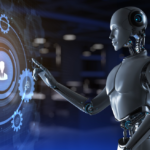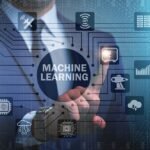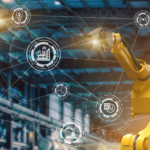Winning with AI
/ /
In today’s hypercompetitive business landscape, staying ahead of the curve is paramount to success. As technology continues to evolve, one tool stands out as a game-changer for businesses seeking a competitive edge – Artificial Intelligence (AI). Winning with AI goes beyond just implementing AI solutions; it involves a strategic approach to harnessing the full potential of AI to optimize operations, drive innovation, and create a winning formula. In this blog post, we will explore how businesses can leverage AI effectively to emerge victorious in their respective industries.
- Unleashing Data Insights: Data is the fuel that powers AI. Businesses possess a wealth of data, and AI can unlock its hidden insights. By employing AI-powered analytics, businesses can make data-driven decisions with precision, identify trends, and uncover patterns that may have gone unnoticed. These actionable insights enable businesses to stay agile and make informed choices that lead to success.
- Personalizing Customer Experiences: In the age of personalization, AI enables businesses to cater to individual customer needs like never before. AI-driven customer analytics and recommendation engines allow businesses to offer personalized products, services, and marketing messages, creating a unique and memorable customer experience. Satisfied and engaged customers are more likely to become loyal advocates, giving businesses a competitive edge.
- Automating Mundane Tasks: AI’s ability to automate repetitive and time-consuming tasks liberates employees to focus on high-value activities. By automating mundane processes, businesses can streamline operations, improve efficiency, and reduce human errors. From data entry to customer support, AI-driven automation empowers businesses to allocate resources more strategically.
- Enhancing Product and Service Offerings: AI-powered product and service enhancements can elevate businesses above their competitors. From smart product recommendations to AI-driven design improvements, businesses can create offerings that resonate with their target audience. By constantly evolving their products and services through AI, businesses can capture market attention and loyalty.
- Predictive Decision-Making: AI’s predictive capabilities empower businesses to anticipate future trends and customer preferences. By analyzing historical data and market trends, AI models can generate accurate predictions, enabling businesses to make proactive decisions that align with evolving market demands. Anticipating changes ahead of competitors helps businesses stay ahead of the game.
- Improving Supply Chain Efficiency: AI’s impact extends to optimizing supply chain management. AI-powered demand forecasting, inventory management, and logistics optimization lead to cost savings and improved efficiency. Businesses that leverage AI in their supply chain processes can deliver products faster, reduce wastage, and enhance overall operational resilience.
Posted in Blogs


































